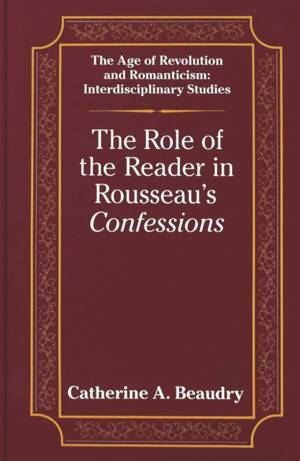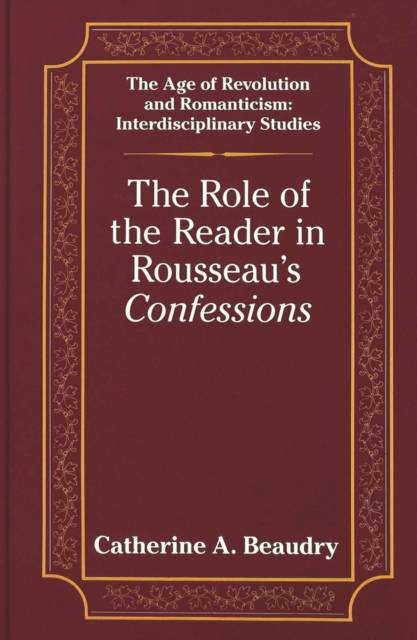
Bedankt voor het vertrouwen het afgelopen jaar! Om jou te bedanken bieden we GRATIS verzending (in België) aan op alles gedurende de hele maand januari.
- Afhalen na 1 uur in een winkel met voorraad
- In januari gratis thuislevering in België
- Ruim aanbod met 7 miljoen producten
Bedankt voor het vertrouwen het afgelopen jaar! Om jou te bedanken bieden we GRATIS verzending (in België) aan op alles gedurende de hele maand januari.
- Afhalen na 1 uur in een winkel met voorraad
- In januari gratis thuislevering in België
- Ruim aanbod met 7 miljoen producten
Zoeken
Omschrijving
Jean-Jacques Rousseau created the autobiographical genre in 1766 when he began his Confessions. Before him, readers were familiar with Christian apologetics and memoirs, but not with a modern autobiography. This book examines the role Rousseau requires his rhetorical reader to play, if he be in earnest, and it offers the contrasting reactions of real readers who when faced with the final version of the text were stunned by what they read, for the Confessions went far beyond all expectations in their belligerence, their intimacy of detail and their overwhelming critique of the social institutions of the ancien régime. The study shows how readers past and present refer time and again to the same passages, always heavily embedded with caveats and exhortations to the reader.
Specificaties
Betrokkenen
- Auteur(s):
- Uitgeverij:
Inhoud
- Aantal bladzijden:
- 174
- Taal:
- Engels
- Reeks:
- Reeksnummer:
- nr. 2
Eigenschappen
- Productcode (EAN):
- 9780820416472
- Verschijningsdatum:
- 1/01/1992
- Uitvoering:
- Hardcover
- Formaat:
- Genaaid
- Afmetingen:
- 236 mm x 160 mm
- Gewicht:
- 379 g

Alleen bij Standaard Boekhandel
+ 106 punten op je klantenkaart van Standaard Boekhandel
Beoordelingen
We publiceren alleen reviews die voldoen aan de voorwaarden voor reviews. Bekijk onze voorwaarden voor reviews.









